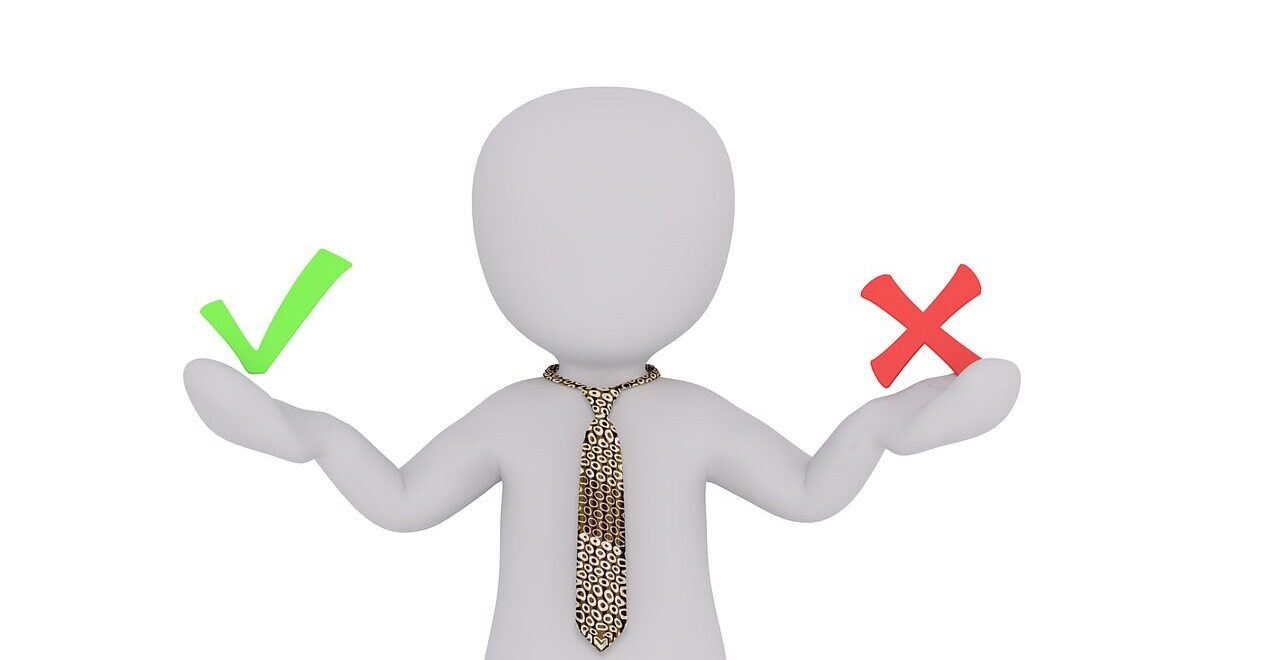There’s no question that you have an entrepreneurial spirit. The only question is whether you should buy an existing business rather than start a new one from scratch. Here are some pros and cons of buying a business to help you decide.
One of the best parts of owning a business is getting to do everything your way. Ironically, this can also be the downside of business ownership — you’ve got to figure everything out for yourself. And it’s not easy. According to data from the Bureau of Labor Statistics, half of small businesses fail by year five, and 70% disappear within 10 years.
One potential way to increase the odds of success is to purchase an existing business that has already proven itself to be viable. While you may not get the same thrill as starting with a blank slate, you might get other things – like an easier time accessing capital, a ton of legwork already done for you, and the ability to make money right away.
At the end of the day, whether to buy or build is a personal decision. Building is generally riskier and more difficult, but may be more rewarding. Buying is generally safer and easier, but may not scratch that entrepreneurial itch in quite the same way. Keep reading for more pros and cons.
Pros of buying a business
Some people find it surprising that anyone would want to sell a successful business. But business owners have many reasons for wanting to sell. For example, they could be looking to move or retire, they may no longer want the stress of running a business, or they might have some other need for the cash.
Here are some of the reasons why it can be desirable to take over a business that is already prospering.
Proven track record
Perhaps the most difficult part of starting a business from scratch is not knowing how the market will react. Is it the right concept? Is it the right location? How will you attract customers? How much will they spend with you? What will your expenses look like? And how much profit will be left at the end of the day?
Buying a business lets you start with these questions already answered. Sure, there may be room to enhance the business and improve its results, but you’ll be starting from an established baseline on day one. This is very different than having to wait and see if your plans will work out.
Competitive advantage
When you buy an existing business, you have many potential competitive advantages — especially over others who are trying to start businesses from scratch. For one thing, you won’t be burning time and money setting up the business and tweaking the concept to find success. Since you’re already starting from a place of success, you can either spend less time and money running it, or you can invest that time and money into growing the business and making it even more profitable.
Another related competitive advantage when you buy an established business is there is already awareness. You have customers and people that know who you are. The brand already exists. Building a new brand out of thin air can be costly, and having this already in place gives you a major head start.
Strategic local gain
When you buy a business, you quickly gain a presence where it is located. Your impact and influence on the local market is almost immediate, without the need to go through all the steps of setting up a new entity in that location. This can be advantageous in at least two ways.
The first is that you can take over a local competitor and go from having an arch-rival around the corner, to being the only game in town. The second is you can acquire a business in a location where you currently have no presence, and suddenly be active in that area. These are just two strategic reasons that you may wish to expand through the acquisition of an existing business.
Vendor assistance
Bank financing and other sources of funding may not be easy to come by when you are proposing a brand-new, untested business idea. But when you are purchasing an existing business, there is a lot more for lenders and investors to get excited about — like proven financial records.
And there is another potential source of funding when you buy a business — the seller themself. In many cases, business sellers will accept a portion of the purchase price in the form of a series of payments with interest. Not only does this give the buyer more financing options, it can also yield strategic benefits, because the seller now has a financial interest in the continued success of the business. That means they have an incentive to provide additional training, mentorship and even hands-on assistance during the transition period.
Market insight
Many successful businesses have had to pivot along the way. For example, Netflix started off mailing DVDs to people’s homes before they figured out that online streaming was what people really wanted.
When you start a business from scratch, it’s unlikely that you will get everything right the first time. Through experience, you will learn about the realities of your market. You will discover some products, services, or promotions that add to your bottom line, as well as some that end up eating your resources without paying off.
Buying an existing business can help you bypass some of this trial and error. You’ll already have insight into the market — who your customers are, how they shop, what they want, and how much they’re willing to pay.
Cons to buying a business
While there’s something very appealing about being handed the keys to a thriving business, it may not be as simple as it looks. With a brand new business, you get to start with a blank slate. But as the new owner of an established business, you’re suddenly responsible for a lot of existing people, processes, and parts — including all of their beliefs, baggage, conflicts and complexities.
Here are some of the reasons why taking over an existing business may not be the best choice for everyone.
Takeover strategy
Taking over an existing business is a big job. Once you’ve identified the business you’d like to buy, you need to indicate your interest and conduct what’s known as due diligence. This is a process where you go over everything in the business with a fine toothed comb. You’ll want to understand its earnings, its assets, its people, its contracts and relationships, its legal obligations, and everything else that can have a material impact on its valuation and its future success.
After due diligence is complete, you will either decide that the business is not for you, or that you are still interested, and have a better idea of how much you’d be willing to pay for it. Then there is a negation with the seller to agree on a price, arranging the financing needed to cement the deal, and finally, the closing of the deal.
It is entirely possible that you will go through this process more than once before you conclude a successful deal. It is also possible that you will purchase a business only to find out later that there are issues you were not able to uncover during due diligence.
For some people, the effort and risks of a takeover strategy are not justified, and they would rather start clean with a brand new business.
Integration challenges
If you are acquiring an existing business with the intention of merging it with another business, or even with the intention of bringing in some of your own experienced people to join the team, there is the possibility of encountering integration challenges.
One type of integration challenge involves processes in any area, from financing to manufacturing, to customer service expectations. If you have two teams of people or equipment or technology that operate by different processes, they will need to be integrated, and this can create both technical and interpersonal challenges.
When you acquire a company with experienced staff, this can be particularly true. While their experience can be very valuable and helpful, change is never easy. You might need to be extra careful that integrating them with new people or processes is handled delicately in order to make the transition a smooth one.
Different mission statements
Most businesses have a mission statement, even if it’s not explicitly written down. Effective teams understand what they are there to do, whether it’s to build the highest quality product, deliver the lowest-cost solution, or achieve the most profit per transaction. Where the company focuses will have a big impact on its culture and the kinds of people who enjoy working there.
If you are taking over a business where the mission does not align with your personal values or with those of your key people, it will likely cause cultural problems. For this reason, some people will prefer to start a new business of their own where they can define their own mission and hire only those who share their values.
Dependence on existing staff
Integrating and aligning people with a new owner isn’t always easy, and if you are taking over a new business in which you will depend heavily on existing staff, it could be risky. This is especially true if staff members would be hard to replace due to their skillset, knowledge of the business, or challenges in the labor market.
Some entrepreneurs might prefer to start smaller, take a more hands-on approach, and be less dependent on others as they start their new business journey.
Is buying a business right for me?
Should you buy a business? The pros are compelling: less risk, higher odds of success, and the potential for immediate profits. The cons are also real: less creative freedom and the possibility that something goes wrong during the takeover and integration.
Your best bet is to know what matters to you. Understand your strengths, your weaknesses, and your capacity for risk. Have a look at the marketplace for existing businesses as well as the gaps where none exist, and make an informed decision. This way, no matter what, you won’t have any regrets.
Get started with Swoop
If buying a business is the right option for you, let Swoop scan the market for the best business financing options and deliver them to you in minutes. You can get started right now.








 yet? Register here!
yet? Register here!